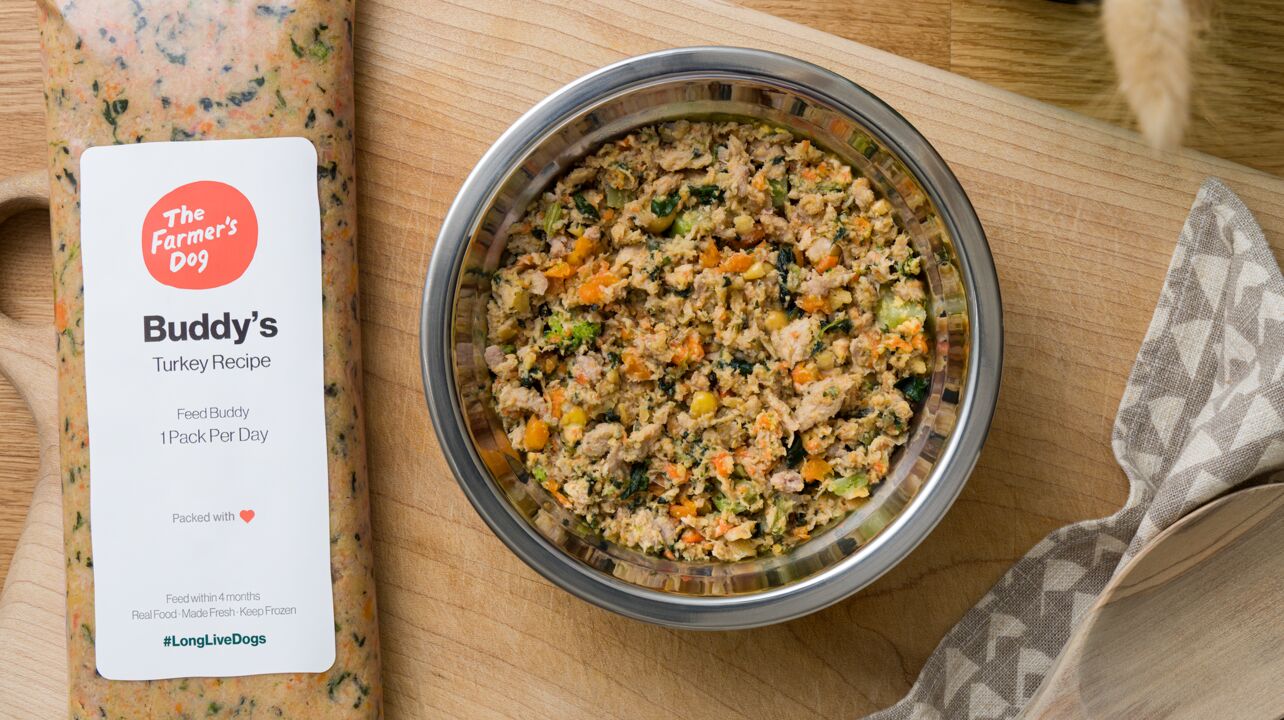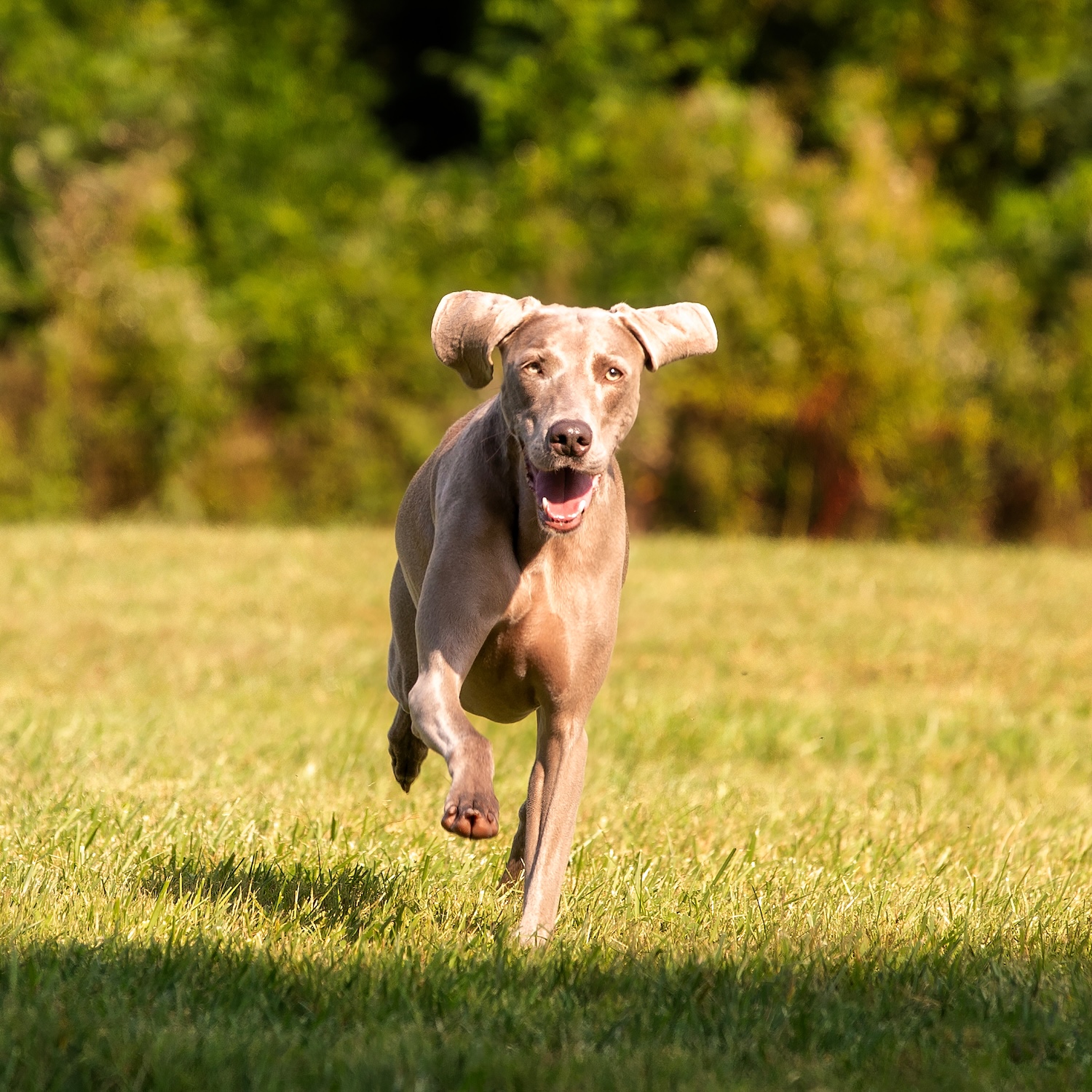Yes, dogs can eat turkey—it’s good for them if prepared the right way and served in the proper quantities. In fact, The Farmer’s Dog has a turkey recipe. But that doesn’t mean you should feed your dog just anything made with turkey. Here’s what you need to know about letting your dog gobble up this popular poultry.
Basic info on turkey
Turkey, the food, is meat from the bird of the same name. Humans and animals, including dogs, often eat it. It’s a lean, palatable source of protein.
Can turkey be good for dogs?
Turkey can definitely be healthy for dogs. It’s a source of protein, B vitamins, zinc, magnesium, selenium, and many other essential nutrients. But don’t feed your dog turkey off of your plate unless it’s cooked and completely unseasoned—and the skin, bones, and fat have been removed. These restrictions mean you should avoid giving your dog products like turkey sausages and turkey bacon, too.
Added salt and spices from turkey recipes that humans like to eat can upset dogs’ stomachs or cause them serious health problems. Garlic and onions, for example, are toxic to dogs.
While butter is not poisonous to dogs, nor are most oils, it’s not wise to feed them turkey that’s been prepared using those added ingredients. Butter is high in fat, so it’s best to keep your dog away from foods made with a lot of it. Some oils are actually great for dogs, but a rich turkey dish made for people isn’t.
Turkey bones can be hazardous to dogs, and they should never chew them, cooked or raw. More on that later.
It’s also not a good idea to feed your dog a piece of raw turkey, which carries a risk of food-borne illness for them and for you. In the United States, commercially available pet foods made with poultry use a “kill step”—either cooking or some other type of processing—to eliminate harmful pathogens. The raw turkey you buy at a grocery store is meant to be cooked by the consumer, and will not have gone through any such process.
The best way to feed your dog turkey is part of a complete and balanced diet that’s safe for daily feeding. Like all of our food, our turkey recipe was developed by board-certified nutritionists to be complete and balanced—and safe to feed for the life of your dog. The recipe is made from whole meats and vegetables, and includes added vitamins and minerals. It’s human grade, which means that all of its ingredients—and the facilities where it’s made—are subject to the same strict standards as human food.
How much turkey can a dog eat?
It depends. If your dog’s complete and balanced food is made with turkey, they can eat as much of it as their daily caloric allotment allows (our turkey recipe comes pre-portioned for your dog’s unique needs, so you know exactly how much to feed each day to maintain their healthy weight).
Over-feeding anything, even a healthy ingredient like turkey, risks weight gain, which comes with serious health implications.
If you’re feeding your dog plain turkey as a treat, only give them a little. All of your dog’s treats or meal toppers combined should make up a maximum of 10% of their daily calories.
Should I let my dog chew a turkey bone?
No.
Cooked turkey bones are a very bad idea for any dog to chew, and you should never let yours near one. Cooked bones can break apart and cause issues including, but not limited to, painful, life-threatening bowel obstructions for the dogs chewing them.
Raw bones can expose dogs and their human family members to dangerous pathogens. There’s also the risk that a dog could break a tooth or otherwise injure themselves on a raw bone.
All in all, most dogs can enjoy turkey safely—and, as long as you follow the guidelines above, it can be a healthy part of their diet.








